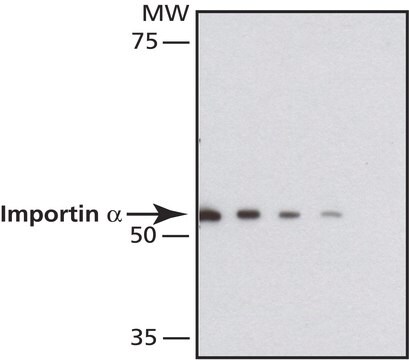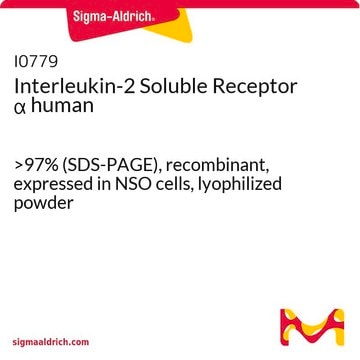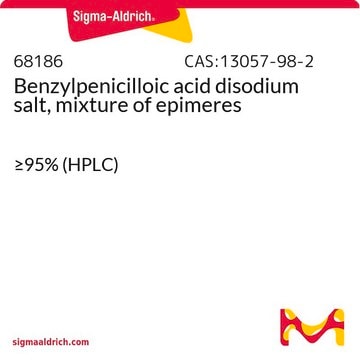I2534
Anti-Importin β antibody,Mouse monoclonal
clone 31H4, purified from hybridoma cell culture
Synonym(s):
Anti-Imp β, Anti-karyopherin β1, Anti-p97
About This Item
Recommended Products
biological source
mouse
Quality Level
conjugate
unconjugated
antibody form
purified from hybridoma cell culture
antibody product type
primary antibodies
clone
31H4, monoclonal
form
buffered aqueous solution
mol wt
antigen ~97 kDa
species reactivity
rat, human, mouse, bovine
technique(s)
immunocytochemistry: suitable
indirect ELISA: suitable
western blot: 0.5-1 μg/mL using HeLa total cell extract
isotype
IgG1
UniProt accession no.
shipped in
dry ice
storage temp.
−20°C
target post-translational modification
unmodified
Gene Information
human ... KPNB1(3837)
mouse ... Kpnb1(16211)
rat ... Kpnb1(24917)
General description
Specificity
Immunogen
Application
- enzyme linked immunosorbent assay (ELISA)
- immunocytochemistry
- immunofluorescent staining
- coimmunoprecipitaion
- western blotting
- immunofluorescence
- immunoprecipitation
Biochem/physiol Actions
Physical form
Storage and Stability
Disclaimer
Not finding the right product?
Try our Product Selector Tool.
Storage Class Code
10 - Combustible liquids
WGK
WGK 3
Flash Point(F)
Not applicable
Flash Point(C)
Not applicable
Certificates of Analysis (COA)
Search for Certificates of Analysis (COA) by entering the products Lot/Batch Number. Lot and Batch Numbers can be found on a product’s label following the words ‘Lot’ or ‘Batch’.
Already Own This Product?
Find documentation for the products that you have recently purchased in the Document Library.
Our team of scientists has experience in all areas of research including Life Science, Material Science, Chemical Synthesis, Chromatography, Analytical and many others.
Contact Technical Service







